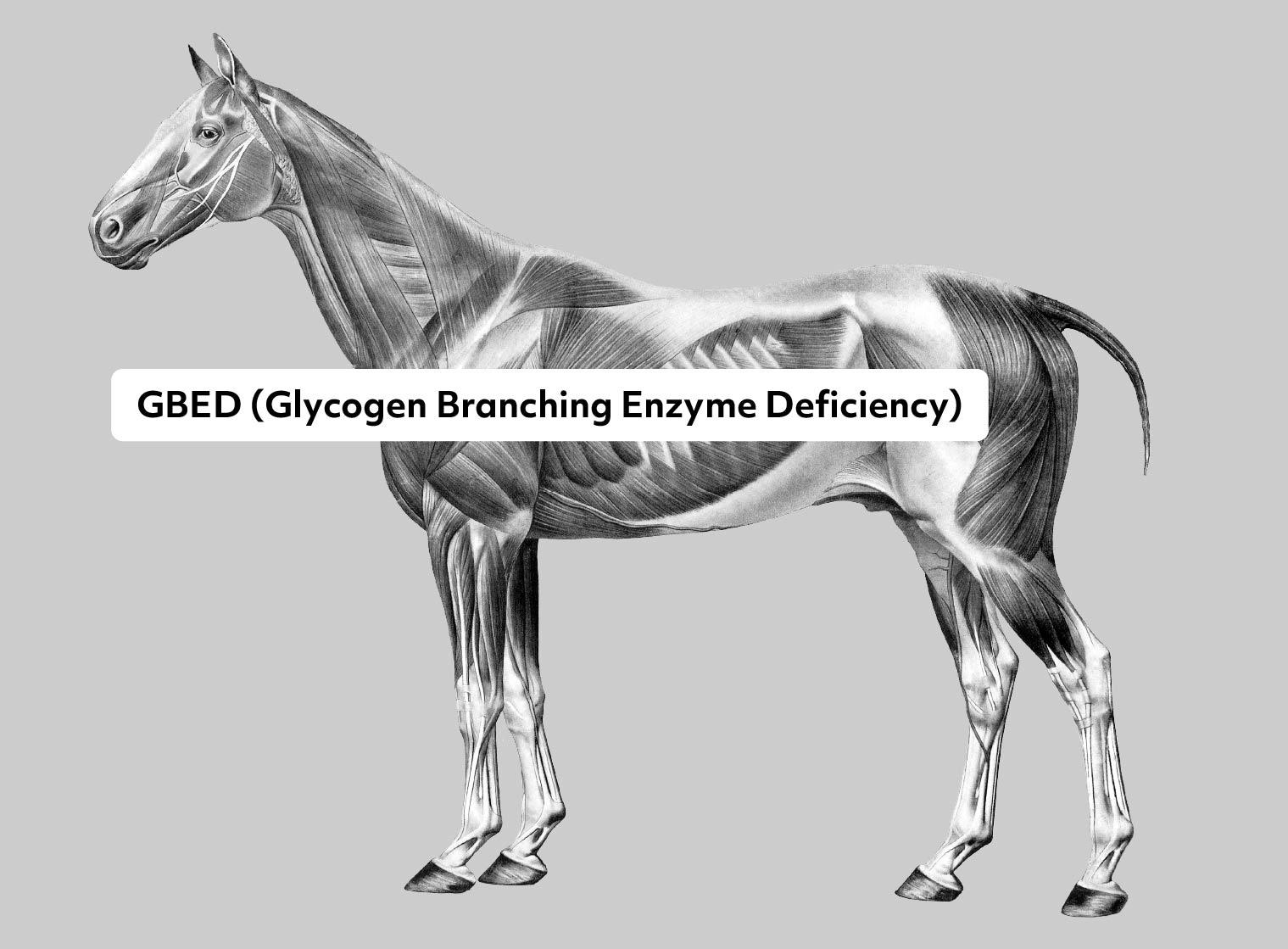Glycogen Branching Enzyme Deficiency (GBED)
Gene or Region: GBE1
Reference Variant: C
Mutant Variant: A
Affected Breeds: Quarter Horses and Paint Horses
Research Confidence: High - Findings reproduced in multiple studies
Explanation of Results: gbed/gbed = homozygous for Glycogen Branching Enzyme Deficiency, trait expressed gbed/n = heterozygous for Glycogen Branching Enzyme Deficiency, carrier n/n = no variant detected
Glycogen Branching Enzyme Deficiency (GBED) in Horses: Genetic Testing, Symptoms, and Management
Glycogen Branching Enzyme Deficiency (GBED) is a lethal recessive disorder characterized by seizures, muscle weakness, respiratory failure, and death. Many affected foals do not make it full term and are aborted or stillborn. Carriers (gbed/n) have no known issues. This disorder is analogous to glycogen storage disease type IV in humans and Norwegian forest cats. Studies have indicated that between 4-11% of registered American Quarter Horses and American Paint Horses carry the GBED mutation.
Gene Information
GBE1 is an enzyme involved in the conversion between glucose and glycogen. Both stored glycogen and mobilized glucose are vital for normal physiological functions. Glycogen storage disorders have been documented in many species. The GBED mutation results in a premature stop codon that severely truncates the produced protein.
References
Ward TL et al., “Glycogen branching enzyme (GBE1) mutation causing equine glycogen storage disease IV.” (2004) Mamm Genome. 15: 570-7. PMID: 15366377
Wagner ML et al., “Allele frequency and likely impact of the glycogen branching enzyme deficiency gene in Quarter Horse and Paint Horse populations.” (2006) J Vet Intern Med. 20: 1207-11. PMID: 17063718
Tryon RC et al., “Evaluation of allele frequencies of inherited disease genes in subgroups of American Quarter Horses.” (2009) J Am Vet Med Assoc. 234: 120-5. PMID: 19119976
More Horse Health
Lordosis
Lordosis (L1, L2, L3, L4), also known as "Swayback", is a curvature or dip in the spine that is often seen in older horses. However, in the American Saddlebred, this condition also affects younger horses. These animals do not appear to experience pain from their condition and are still able to be used under saddle.
Malignant Hyperthermia
Malignant hyperthermia (MH) is a muscle disorder in which anesthesia, stress, or extreme exercise trigger a hyperthermic state. Symptoms include high temperature, increased heart rate, high blood pressure, sweating, acidosis, and muscle rigidity. If symptoms are not immediately resolved, death is likely to occur.
Myosin-Heavy Chain Myopathy
Myosin-Heavy Chain Myopathy (MY; previously "IMM") is a genetic muscle disease found most commonly in stock-type horses that can result in two different presentations, Immune-Mediated Myositis (IMM) and Nonexertional Rhabdomyolysis “tying up,” which are both characterized by muscle damage or loss. Both presentations are associated with the same genetic variant. Horses with MYHM may exhibit one or both presentations at different times in their lives, although some horses carrying the variant might not display any symptoms at all.
Myotonia
Myotonia (MYT) is a rare disorder involving a slowed relaxation of muscles after contraction. The most well-known example of myotonia is “fainting goats,” a breed that is characterized by sudden rigidy and/or falling over when startled. In the single documented horse, this resulted in a protruding third eyelid when excited, as well as problems with muscle stiffness.
